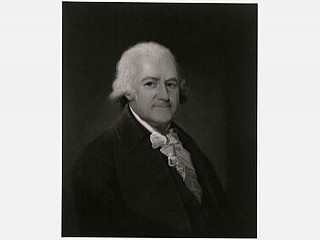
Daniel Leonard biography
Date of birth : 1740-05-18
Date of death : 1829-06-27
Birthplace : Norton, Massachusetts
Nationality : American
Category : Famous Figures
Last modified : 2011-02-14
Credited as : Lawyer, and essayist,
Daniel Leonard, American loyalist lawyer and essayist, was John Adams's opponent in a notable newspaper exchange on the eve of the American Revolution.
Daniel Leonard belonged to a family long prominent in Massachusetts. He attended Harvard and delivered the salutatory address at his graduation exercises in 1760. He then studied law in the office of Samuel White, Speaker of the Massachusetts House of Representatives. He married White's daughter in 1767. Soon he began to assume an appropriate role in politics; among other offices, he was elected to the Massachusetts House of Representatives in 1770.
Through the 1760s and early 1770s Leonard enjoyed the advantages of his family's wealth and position and of his own popularity. Then in 1773 and 1774 Leonard sacrificed these by supporting British policy. According to traditional
accounts, Leonard was persuaded by Massachusetts Governor Thomas Hutchinson to support the loyalist position in the spreading conflict between the Colonies and Great Britain. Leonard accepted office as an appointed member of the governor's council, which had been reorganized under the Massachusetts Government Act, one of the Coercive or Intolerable Acts. The resulting ostracism and threats of violence by neighbors convinced Leonard to seek the protection of British soldiers in Boston.
Safe for the moment, Leonard wrote 17 articles for the Massachusetts Gazette, using the pseudonym "Massachusettensis." In the essays he stated the opinion that men of property such as himself should support the Crown and that resistance to Great Britain could not succeed. He thought Great Britain had the constitutional right, as well as the military power, to impose its policies upon America. Moreover, he really saw George III "as the provident father of all his people"—whether in the New World or the Old. John Adams, writing as "Novanglus," answered Leonard's arguments by clearly defining the American view of the constitution of the empire; he stated that Americans owed loyalty to the king and not to Parliament.
As revolutionary activity increased, Leonard was forced into exile. He went to England and again took up the practice of law. From about 1782 to 1806 he held office as chief justice of Bermuda. After two brief visits to Massachusetts, where he still had numerous relatives, he returned to London and spent the last 15 years of his life as an active barrister. He died of a pistol shot, either the victim of an accident or suicide.
















